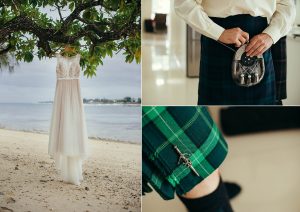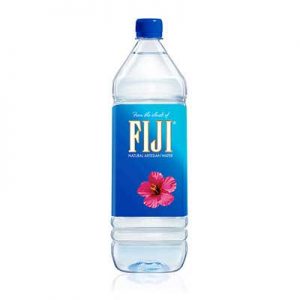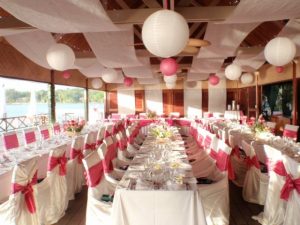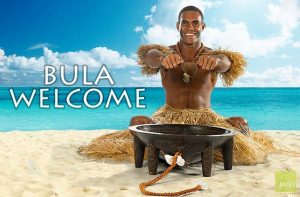 Recently we had an inquiry asking whether we could arrange for a bagpiper to play at a chapel wedding ceremony into Fiji. Unfortunately we couldn’t find one. I have organised a piper for a Vanuatu wedding a few years back simply because there was a resident expatriate who was a piper – it’s not known as a tropical instrument! Having said that, there was a very Scottish kilted wedding at Erakor Island Resort in Vanuatu not that long ago…
Recently we had an inquiry asking whether we could arrange for a bagpiper to play at a chapel wedding ceremony into Fiji. Unfortunately we couldn’t find one. I have organised a piper for a Vanuatu wedding a few years back simply because there was a resident expatriate who was a piper – it’s not known as a tropical instrument! Having said that, there was a very Scottish kilted wedding at Erakor Island Resort in Vanuatu not that long ago…
The quest got me wondering what ‘bagpipes’ would be in the Vanuatu pidgin language, Bislama… It could be complicated when you consider that ‘piano’ is ‘wan bigfala blak bokis hemi gat waet tut mo hemi gat blak tut, sipos yu kilim smol, hemi singaot gud’… This literally translates to ‘one big fella black box, him he got white tooth and him he got black tooth, suppose you kill him small (hit lightly) him he sing out good’…
Bislama is both an efficient and fun language. For example, Prince Charles is now 70 but age has not wearied him in the Bislama language – he is still known as ‘nambawan pikinini blong Misis Kwin’ which literally translates as the ‘number one baby belonging to Mrs Queen’…
Photo: Groovy Banana with more photos and videography of that wedding here)












